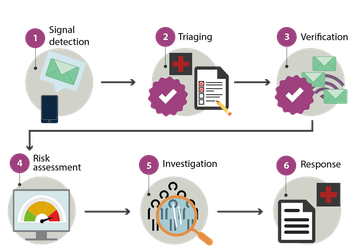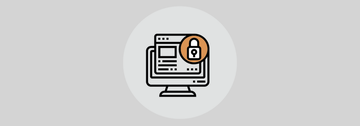Data Collection and Management
CBS data can be collected from other humans, non-human health services, and informal sources. Human data sources include health providers 👩🏼⚕️, pharmacies, schools, workplaces, community or faith leaders, the ministry of health or NGOs. Data from non-human sources come from many different sources including animal services, food safety agencies🏢, customs control, water and sanitation, air quality and radiation services.
Informal data sources include press, radio, television, newspapers, blogs, social media and websites. 📻📺💻
Data Collection Tools
During COVID-19, going out and collecting data in person can be challenging. You may have to use mobile or electronic tools📱for virtual data collection. To get the best results work with your supervisor to choose data collection tools that the community is familiar with. Mobile/electronic tools include like SMS, WhatsApp, social media groups and mobile Health Management Information Systems (HMIS). 📈
Data Collection Methods

Data for community-based surveillance follows six steps:
- Signal detection: identify events in the community that can be a health risk & send it to a supervisor
- Triage: the supervisor checks if what you reported is a risk for COVID-19
- Verify: supervisor confirms and creates a report
- Risk Assessment is done on available information
- Investigation: local health authorities investigate to get more details
- Response: the public health authority will draw up a plan to respond
Report suggestions, rumors and fears to your supervisor, too. 💬Rumour reporting can lead to quicker public health response than lab results. But remember to protect each person's privacy🔐. If there is an outbreak, you may need support from more staff. Consider training others through phones or meeting outdoors in small, physically distant groups
Data Management

You may have to collect sensitive data, and thus you are responsible for keeping it private. Collect only what's needed to complete the report. Remove personal data if not needed. If storing confidential data, ensure that it is locked away 🔒 and access to the data is limited to you team for the puposes of CBS. A supervisor must keep a log of who acesses the data.
Average Rating: ☆ ☆ ☆ ☆ ☆ (0 reviews)


